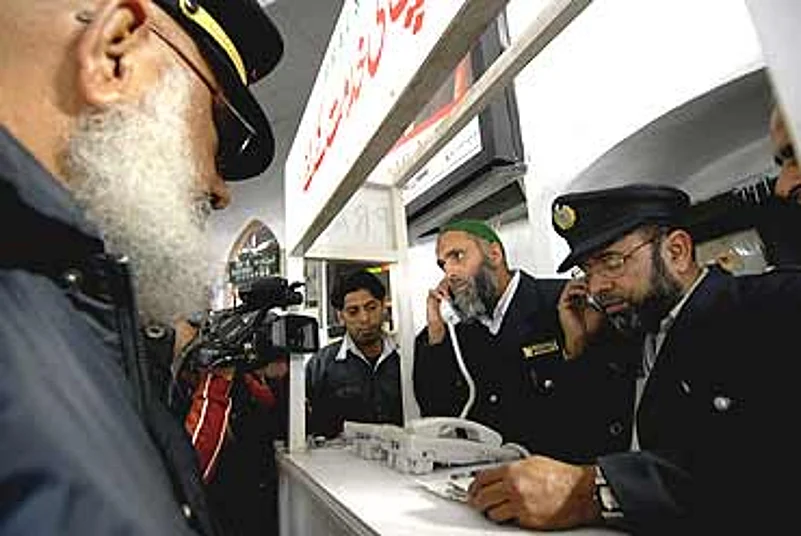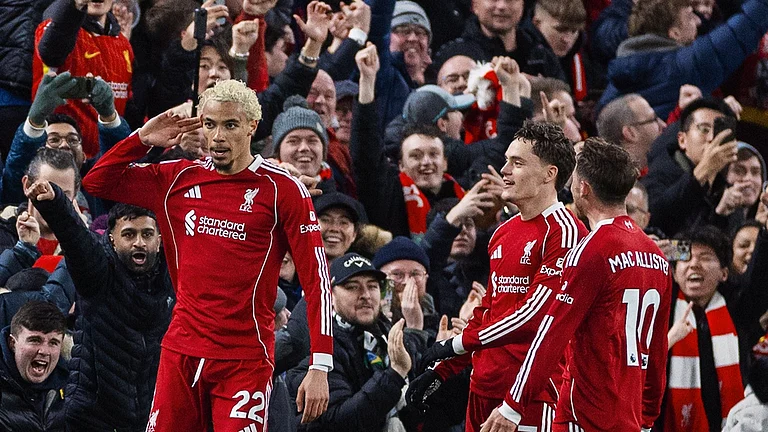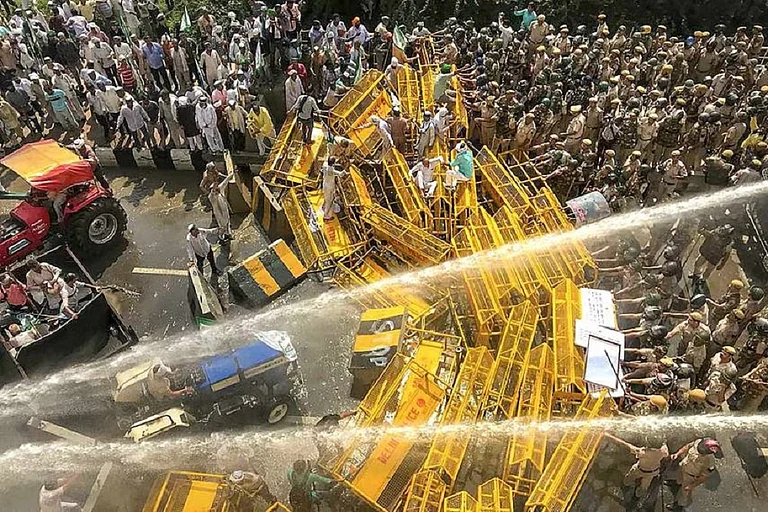
"Who could have done this," asked the Pakistani immigration officer at the Wagah border, which we had to cross that day, before our visas ran out. "Laskhar-e-Toiba," we suggested tentatively, as clueless as anyone else. "But what about your Indian groups, you know, your BJP and your Shiv Sena," he asked. It was not an accusation—rather, a painful search for answers, and an inability to believe that Muslims might have deliberately targeted Muslim passengers.
At the deserted border, officials were sombre, and so were the coolies. The Pakistani porters wear orange and green uniforms, the Indians blue, but their stories are identical: small farmers and landless from nearby villages, grateful for a smoother flow of traffic on the border, of passengers and goods. We watched them unload painted trucks from Kabul, laden with dry fruits for India or sacks of Indian onions bound for Pakistan. When the sacks shifted from Indian heads to Pakistani heads at zero point, heads almost met. Almost, but not quite. For both sides, news of the train disaster brought the same worry: life was getting better on the border, let nothing derail that.

At the Attari railway station, a short drive from Wagah, the ill-fated Samjhauta Express had arrived, on its way to Lahore. On the platform, among the immigration counters, were small groups of passengers—the lower middle class and poor of the subcontinent, traumatised by what they had seen and experienced—and unable to make sense of it. "There was no blast," insisted members of the group from Karachi. "There was some fault in the train." But Bhuri, an Indian widow from Meerut, travelling alone, and Zeenat Shafiq, a Pakistani, knew differently. Both had been in coach 11. Their TV soundbites delivered, they were now being examined by a railway doctor. Haltingly, the women talked, remembering the other families sitting around them, the women opening their dabbas to take out their rotis for the evening meal, and the children playing, until the blast ended it all. "Uske baad koi apne maa ke liye ro raha tha, koi apne bachche ke liye," (After that, some were wailing for their mother and some for heir children) said Zeenat, breaking into sobs.
Bhuri, as it turned out, was in double shock. Her daughter, married into a Lahore family, had just died in Pakistan. Their was no question of going back to Meerut now. "I have to look after my grandchildren," she said. It was the same for the rows of Indian Muslims waiting patiently to board the train from Attari. They had seen the charred bodies on TV, but there were things to be done in Pakistan, relatives to meet, weddings to attend. Life had to go on.

























